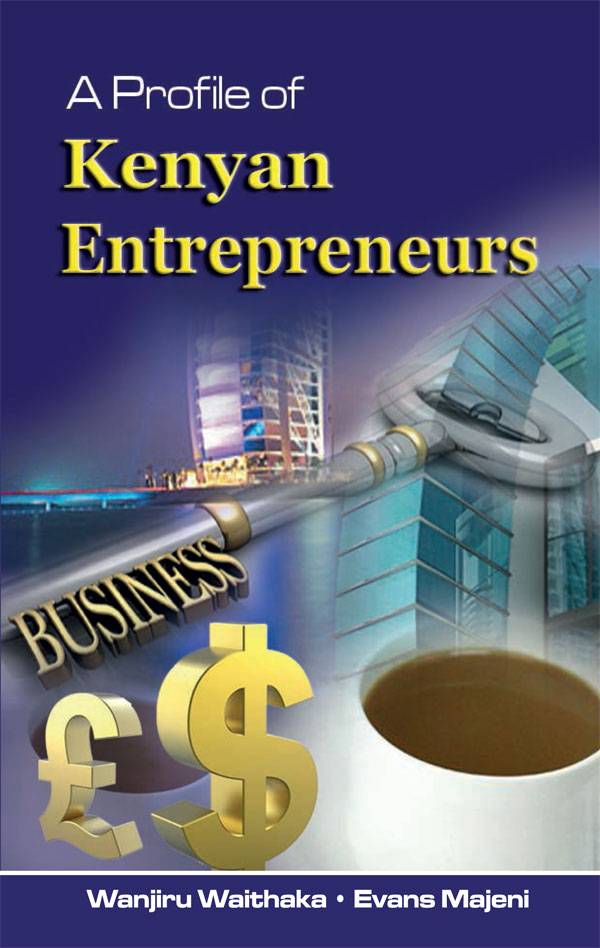When people ask me what I do and I tell them I’m a writer, it elicits the funniest reactions sometimes. Like the time I visited my old employer MRM (Mabati Rolling Mills) and Eunice, a good friend, almost fell off her seat when she asked me who was in my book A Profile of Kenyan Entrepreneurs and I mentioned Manu Chandaria among others.
“You actually interviewed him?” I nodded. “Where?”
“His house.”
“You actually went to his house?” Her eyes opened wide and her voice was hushed as if stunned. From her reaction, one would have thought I said I visited State House.
It was understandable though. Manu, the chairman of Comcraft Group which owns MRM, has this larger than life image but he’s the humblest tycoon I’ve ever met, with the exception of the late Nelson Muguku. I don’t really like dealing with tycoons because most are so arrogant and dismissive, especially if you’re far below them on the economic ladder. There is one I’ve been introduced to three times but he still acts like he has no idea who I am, which is really funny.
Manu is so down to earth that on one or two visits to his home for our interviews, he went to the kitchen and brought tea and biscuits when the housekeeper wasn’t within earshot. On the last interview, he gave me a tour of the house, which I didn’t expect.

S.K. Macharia, founder of Royal Media Services was also in the book and later asked me to pen his autobiography. S.K. was interesting and a really good storyteller. His history was such a roller coaster of bizarre experiences that I always looked forward to our 7am interviews even though I’m not a morning person and getting up at 5am was a struggle. After I finished the draft manuscript, he said he wasn’t going to read it and instead proposed a trip where I would read the book aloud as he made changes and additions as necessary. “Where do you prefer to go, UK or Dubai?” he asked.
I was horrified. As any writer will tell you, by the time you submit a draft to the client, you have reread and rewritten it several times. I couldn’t imagine sitting for 5 days straight while someone (I was definitely not going to do it) read the lines I already knew by heart. I would be bored out of my mind. And why go outside the country to do it? Working from his office was out. We had discovered there were too many interruptions there. But going to the UK just to read a book? Seriously? That’s the day I concluded that S.K. has too much money.
Plus it was winter in the UK. I had no winter clothes and spending money on a new wardrobe just to read a manuscript made no sense to me. His buddy Prof Ngugi, who had been present at all our sessions and who was to join us on the trip, saved the day. He didn’t have a passport and despite S.K.’s urging didn’t apply for one so the venue shifted to Whitesands hotel in Mombasa.
I made sure I sat opposite S.K. so that he couldn’t see that I was playing solitaire on my laptop the entire time, as Prof read the book aloud, only paying attention when he made a comment or added some more material. It was easy to find the page they were on as I knew the book forwards and backwards. But the most amusing incident happened on the plane leaving Nairobi.
I had my nose buried in a book in the waiting area and sat a few rows away from S.K. and Prof who were chatting heartily. I was one of the last to board the plane and took my assigned seat in economy class next to the window. A few minutes later, the stewardess approached looking agitated, with S.K. behind her.
“Are you Wanjiru?” she asked. I nodded. “You’re in the wrong seat.” I removed my handbag from under the seat in front of mine and checked my boarding pass, then assured her I was in the right seat. “We’re really sorry,” the stewardess said.
“For what?”
“It was the airline’s fault,” S.K. chipped in before she could answer, looking furious. I stared at him, thoroughly confused. “We booked you a ticket for Business Class,” he continued.
Ah so that’s it. I wanted to laugh, but he looked so agitated that I stifled the urge. “It’s all right.” I assured them even as the stewardess continued to apologise profusely. I couldn’t understand what the fuss was about. The few times I’d flown before, all work related trips, had been in economy class. It’s a 45 minute flight to Mombasa for Pete’s sake. Not even enough time to finish reading the newspaper.
The drama continued after we landed. I was one of the last to disembark and found S.K. waiting for me on the tarmac in the rain. “Let me carry your bag,” he said. He took the handle of my small suitcase before I could react and led the way into the terminal. What the hell? Then I realised he was trying to make amends. It would have been amusing except he was my father’s age. I should be carrying his luggage.
After we got to the hotel he called his secretary and yelled at her for the mix-up. “You embarrassed me!” Poor girl. It was a typical case of the airline overbooking and hoping some passengers didn’t show up. Guess what? Everyone did and so I got bumped to economy. I discovered later that S.K. has a rule that anyone travelling with him flies the same class as him, even his security. Wow. Gotta respect him for that. No wonder he was upset.
Life as a writer isn’t always glamorous however, even when it involves big brands. Like the time I walked into the newsroom and was assigned to cover the shoot of a new advert for Guinness. Guess where the shoot was? In Gikomba. So deep inside the market that we had to leave the vehicle at some point and go on foot to the location. It was the middle of the rainy season so you can imagine the sludge we had to wade through to get there.
One of the first things I learnt is never wear heels if you work in a newsroom. You can get an assignment to cover a press conference in a posh hotel in the morning and another in a slum the same afternoon. It’s a really unpredictable job and you just roll with the punches so dressing for comfort is important.
One of my favourite stories started in the backstreets of Nairobi. I had observed the hawkers selling sausages using small carts on my way to and from Mlango Kubwa near Eastleigh where I lived at the time and got curious. Where did they get the sausages? Was the business profitable?
So one day I approached a hawker along the road leading to OTC Bus stage. Peter Maina had a steady stream of customers during our 20 minute conversation. On a good day he sold 70-80 sausages, with a profit margin of Ksh3 per sausage. He directed me to the depot at Nyamakima where he obtained the sausages. The staff there fried the meat and sold to the hawkers, the idea being to maintain hygienic conditions and a standard product. I found out that the Nyamakima depot was just one of several spread across Nairobi and Central Province.
My next stop was the parent company’s headquarters at Ruai, about 30km from the central business district. There I found a huge operation led by the creative and resourceful Susan Njoroge, founder of Happy Land Meat Processors Limited. She had spotted a gap in the market and was cashing in. Until then, sausages were sold in bulk packs of 8, 10 or 25 pieces, putting them out of reach of poor people. She created a network of depots which sold sausages through hawkers at Ksh10 a piece.
Business was booming. She had 10 depots, 80 employees and had plans to expand into the retail chains and target the middle class as well as direct sales to institutions. Susan went on to win numerous awards for entrepreneurship. Farmer’s Choice, the market leader, copied her concept and also started selling sausages through hawkers. The company stuck to streets west of Moi Avenue and also sold at upmarket public events. Not surprising, since Susan had the backstreets of Nairobi sewn up.
This is what I love most about business journalism. You can stumble on the biggest and most interesting stories just by observing the world around you. Who would have thought that spotting a hawker selling sausages would lead to a classic illustration of the limitless potential of the market at the bottom of the pyramid? The same market that giants such as Safaricom and Equity Bank exploited to become market leaders in their sectors.
Another story had me going deep inside Kibera slum to find out why people living there preferred to pay money to be treated at clinics run by nurses rather than go to the nearby Otiende Estate where treatment at the government clinic cost just Ksh20 for adults, with free treatment for children.
Judy Moraa, a slum resident, told me the staff at the Langata clinic treat people badly and “sometimes insult us.” Other slum residents concurred, adding that the clinic is always crowded and patients end up wasting precious hours that could be spent working, thereby reducing their daily wage. Sometimes, the clinic has no drugs unlike the Child and Family Wellness (CFW) clinic, which is well stocked.
The CFW clinic in Kibera was part of a franchise network of 65 health shops and clinics in 10 districts run by the Sustainable Healthcare Foundation (SHEF), a non-governmental organisation that combined established micro-enterprise principles with proven franchise business practices to create a micro-franchise business model called CFW shops.
Franchisees were registered nurses or community health workers, who owned and operated the small drug shops and medical clinics strategically located in underserved areas to improve access to essential drugs and focus on the most common killer diseases – malaria, respiratory infections and dysentery, as well as providing health education and prevention services.

Writing exposes you to so many different people and experiences. It’s the only profession where you can talk to a cabinet minister or business tycoon and a lowly watchie in the same week. And chances are, the watchie has a more interesting story than the other two. Whenever I get a writing assignment that takes me out of town, the cabbie becomes my new best friend. Cabbies are a fountain of information and always know what’s going on. They will recommend the best places to get really good food at affordable prices, not the fare you get in high end hotels where you pay Ksh1,500 for a piece of lettuce, carrot and tomato wedges. I discovered that Krep Bank had changed ownership and the name of the new owner from a Kilimani cabbie. I remember thinking: “How on earth did he know that?”
I love talking to ordinary people and discovering how they think, what they’re doing and how they’re making an extra shilling. It’s like having your finger on the pulse of the economy and there’s never a dull moment. It may be taking time to pay off financially, but would I trade in journalism for a desk job and financial security? No way.
********
Have you read my second novel Duel in the Savanna? What are you waiting for? Click here to download this explosive mix of politics, business and romance or read the chapters online.

